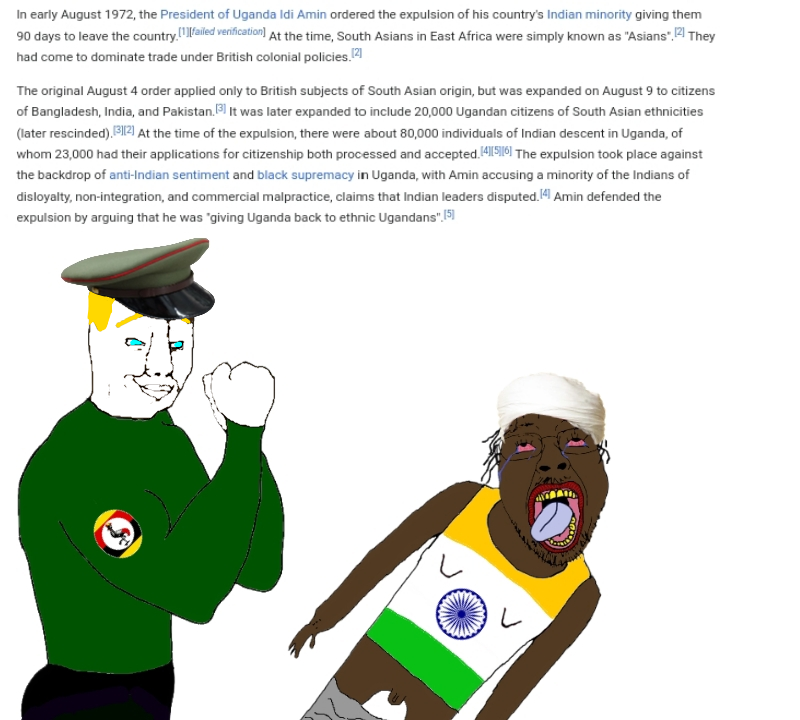IP 216.73.216.183 has been banned until the end of time because of VPN Detected
If you couldn't possibly be guilty of what you're banned for, the person we banned probably had a dynamic IP address and so do you.
See http://whatismyipaddress.com/dynamic-static for more information.
Image

Commenting
Comment Formatting Options
Want to report a comment? Report the post itself with relevant details.
Advertisement
 SoyBooru
SoyBooru
When Ugandan Minister of Finance Moses Ali (who had close connections with Pakistan) was fired in 1978, Pakistan-Uganda relations worsened significantly and a large number of Pakistani personnel was expelled from the country.[72] However, several Pakistanis continued to stay in Uganda and supported Amin's government during the war.[73][71] The journal Africa stated that "informed sources" claimed that "Pakistani technicians and air force personnel" were backing the Uganda Army in its operations against the TPDF.[74] The Pakistani charge d'affaires continued to act as Amin's self-appointed "eyes and ears" until a group of Ugandan soldiers threatened his family amid the deteriorating security situation, prompting him to flee to Kenya.[73] The two most prominent individuals of Pakistani origin in Amin's regime were Faruk Malik, an intelligence officer, and Mohamed Said, chief Justice of Uganda. Both attempted to bolster the Ugandan government during the war,[75] and only fled shortly before the Fall of Kampala.[76][40]
One Pakistani national was captured by the TPDF during the war. He had been serving with the Libyans.[57] Libya was known to use "Pakistani instructors" to support its allies.[58]